Examining Love Sonnets from a Critical Distance
How do young women take agency of their own storytelling? When sitting behind the table in a hierarchal rehearsal room is no longer enough, what could a more conversational and curious rehearsal process look like? This series will investigate these questions and expand on the process of creating Love Sonnets: Things Women Say, a staged reading developed under Emerson College's Mercutio Troupe.
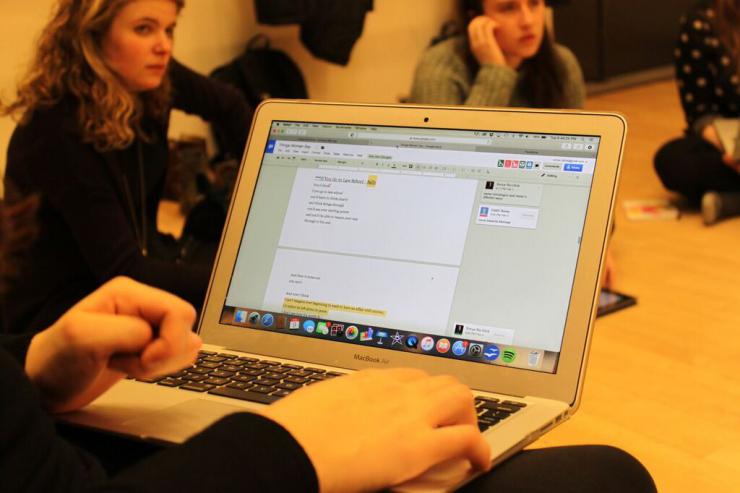
I have a confession: I spent a large amount of Love Sonnets on the sidelines, recovering from a particularly bad endocrine flare-up. Being in the room wasn’t really possible—I had a job (at HowlRound) to do and my last classes (at Emerson) to complete with an impending finish line of a May 1 move-out. So, the majority of our process featured me on the God mic of e-mail, sending out bits of “check out this article!” and “send me your favorite episode of Broad City!” from my phone. It was a bummer not being in the room, that was the unfortunate circumstance of my plan for developing the piece with Caitlin.
But the other piece of the isolation from the space—the most disturbing piece—was my isolation in my own mind. While I had many kind friends stop by to hang out and patiently listen to my griping, I found myself getting deeper and deeper into my own head. When my doctor said “Oh no you don’t” to my heading out to a 10 PM dramaturgy presentation, I was almost relieved. “Thank God,” I thought. “I have no clue what I’m talking about.” Because in the end, Love Sonnets was not the intellectual exercise that I’d been taught to tackle in the classroom and as an intern; it was deeply, gut-wrenchingly, and uncomfortably personal.
“When did you first feel self-actualized as a woman?” Caitlin asked us in the room. Actors provided personal items and stories like being harassed on the street for the first time. There was the grandmother who taught one actress to embrace her eccentricities. There was also the boyfriend who had made her feel both finally worthwhile and terminally worthless. “I, uh, can’t make it in,” I told Caitlin over the phone as I desperately prayed for a Womanhood for Dummies manual. “Sorry!”
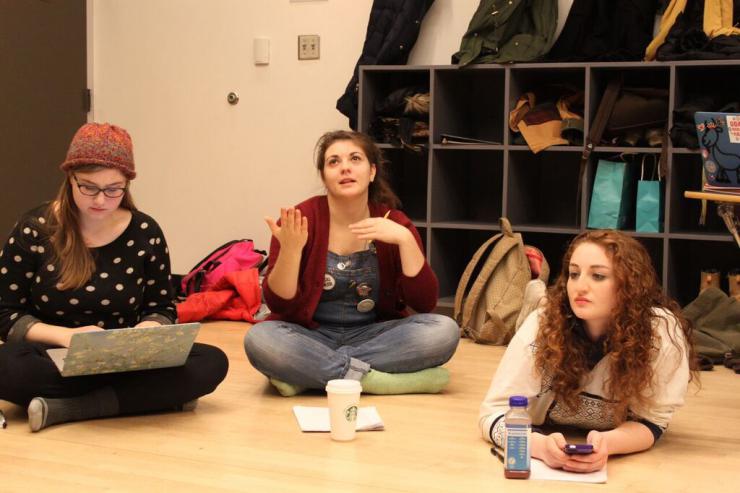
I’ve always treated dramaturgy as something I do from the outside looking in. I always thought that was because it was supposed to be about objectivity—you come in, you look at the script, you make incisions, and you leave the playwright to play Operation. But maybe it’s because I’ve never felt like I’m onstage. Maybe it’s because whenever I talk about Hamlet, or a young man pressing forth into the great wide world, or even a woman who is always strong and beautiful, confident, and wise, I don’t see myself. Where is the female character who is sometimes confident, but often scared? What happens when she tries her best to be kind, but sometimes falls short? In other words, where is the real woman?
Through the process of Love Sonnets—sifting through an outsider's view of being a woman—I realized that so much of what I've processed onstage about womanhood is from the perspective of someone else looking in on the female experience. We paint women as mothers (patient or tyrannical) or girlfriends (crazy or saintly). This is the by-product of a lack of gender parity: stories that hold women as far away as possible from their own experience. We do not have words and works about what it is to be a woman. We have texts that tell us what it is to have a woman in your world, but not how to be a woman in the world. Perhaps the reason why I felt held at such arms’ length was because I never had the opportunity to get that close to my own experience.
Through the process of Love Sonnets—sifting through an outsider's view of being a woman—I realized that so much of what I've processed onstage about womanhood is from the perspective of someone else looking in on the female experience.
Love Sonnets cracked something open for me: an understanding of why and how we distance women from their own experiences (an understanding of why and how I’ve distanced myself from my own experiences). As I stood in the audience after the show, I listened to two audience members discuss how they wished that more plays like this happened at Emerson.
And I think that’s true. And I think producing work by Chuck Mee—a man—about women was a great journey. But I will also say this: Until we allow women to tell their own stories onstage, we will continue to see characters that only share the stories about men in their lives onstage. Until we produce female playwrights in major arenas, we will receive the sorts of characters that live outside their own experience. Until we vote with our reviews, our ticket purchases, our donations to create an American theatre that allows people to share their own experiences onstage, we will be held at an arms’ length. It’s that simple.
Those two freshmen in the audience will have three more years left in college. They’ll have six more semesters to challenge and create and explore without the weight of The Real World bearing down on them (or, at least, lesser so when they leave Boylston and Tremont). They’ll have time to write without worrying about it being produced, and time to figure things out without the pressure of making a name for themselves in the world.
And I hope, in those three years, we’ll do more to make sure their voices are fully-realized onstage. We can continue to produce the Chuck Mees of this world—we need their voices too, as gender parity is that: parity. A balance.
But we’ll also support the Sarah Ruhls of this world, and the Young Jean Lees and Anne Washburns. We’ll support the female writers who aren’t classroom or household names. We’ll make sure that we produce intersectionality, and we’ll make sure we take a hard look at theatres who refuse to produce women and people of color. And we’ll begin to embrace female artists in a way that doesn’t hold them at arms’ length, but instead embraces their experience just like anyone else’s.

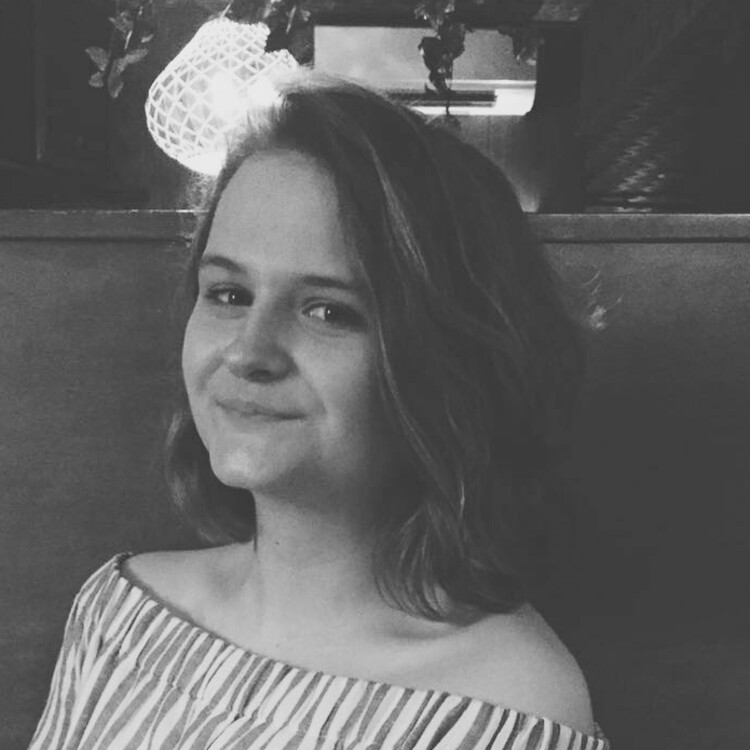
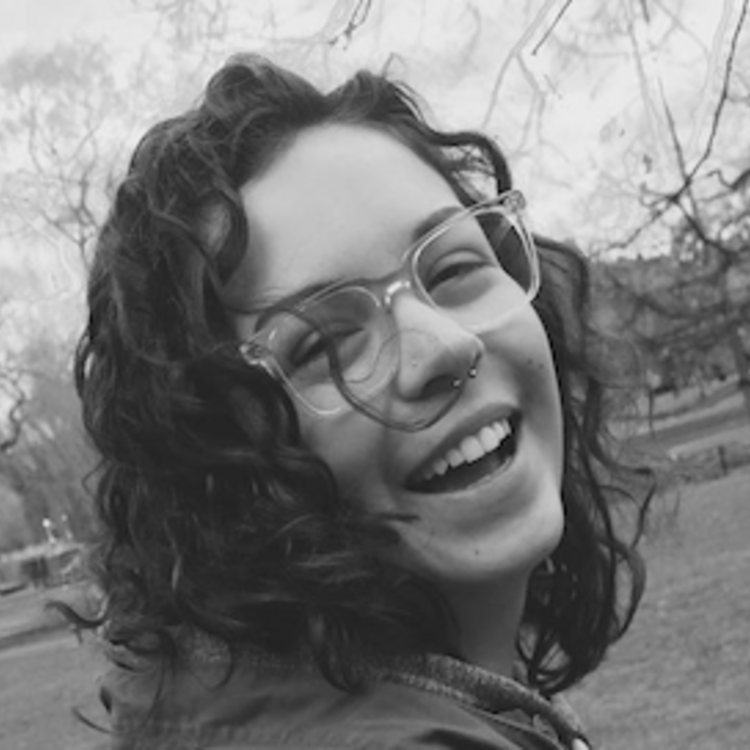
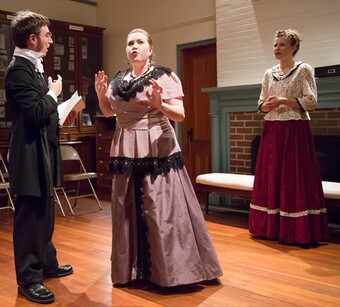


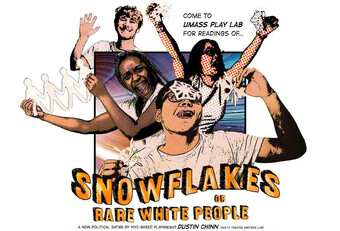

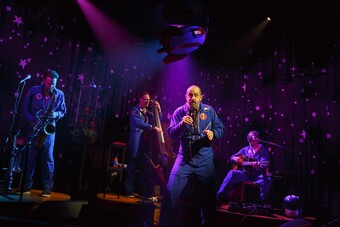


Comments
The article is just the start of the conversation—we want to know what you think about this subject, too! HowlRound is a space for knowledge-sharing, and we welcome spirited, thoughtful, and on-topic dialogue. Find our full comments policy here